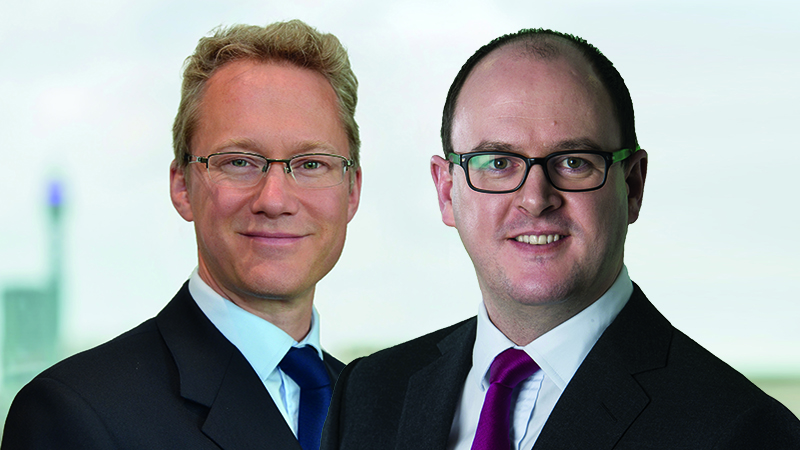Chrysalis Investments has revised the trust’s performance fee structure following the eyewatering £112m pay out that Jupiter managers Nick Williamson (pictured left) and Richard Watts (pictured right) received at the start of 2022.
The agreement, which is currently in principle, sees the overall performance fee level reduced from 20% to 12.5% of the amount by which adjusted net asset value (NAV) exceeds the higher of the high-water mark and the hurdle rate.
Chrysalis confirmed that the high-water mark set in September 2021, following the trust’s bumper financial year, has been maintained.
During the 12 months to 30 September 2021, Chrysalis’ share price grew 57% to 252p, while its total net assets ballooned to £1.4bn during the same timeframe, a stunning increase of 154%.
The Times described the sum that was subsequently awarded to Williamson and Watts as ‘unprecedented’, while Stifel analyst Iain Scouller noted the high risk that such a large yearly performance fee could largely be based on “unrealised gains”.
This proved to be prescient, as Chrysalis’ NAV has fallen by 40% in the last year, with holdings in Klarna, Starling, and Revolution Beauty, which it exited last week, being significant drains on performance.
The agreement means that Chrysalis’ performance fee will now be satisfied in shares, with an issue price set at the higher of NAV and share price at the end of the financial year. These shares will be given only to the management team in a bid to ensure an alignment of interests between the two parties.
The trust has also introduced a deferred settlement structure, which will see three quarters of the awarded shares delayed for three to five years.
Only tax and other liabilities that are attributable to the receipt of the fee will be paid in cash, in stark contrast to the £51.5m of cash that Williamson and Watts received in January, amounting to 46% of the overall fee.
The announcement added that there will be a cap on the performance fee payable if that fee causes the trust’s total expense ratio to exceed 3.75% for the year.
The chairman of the trust, Andrew Haining, said: “This is an attempt to draw alignment more to the share price. Jupiter has waived its right to any future share in performance fees and the resultant smaller performance fee is designed to be for incentivising and retaining the management team.”
See Also: Woes continue for Chrysalis as Starling keeps heading south










